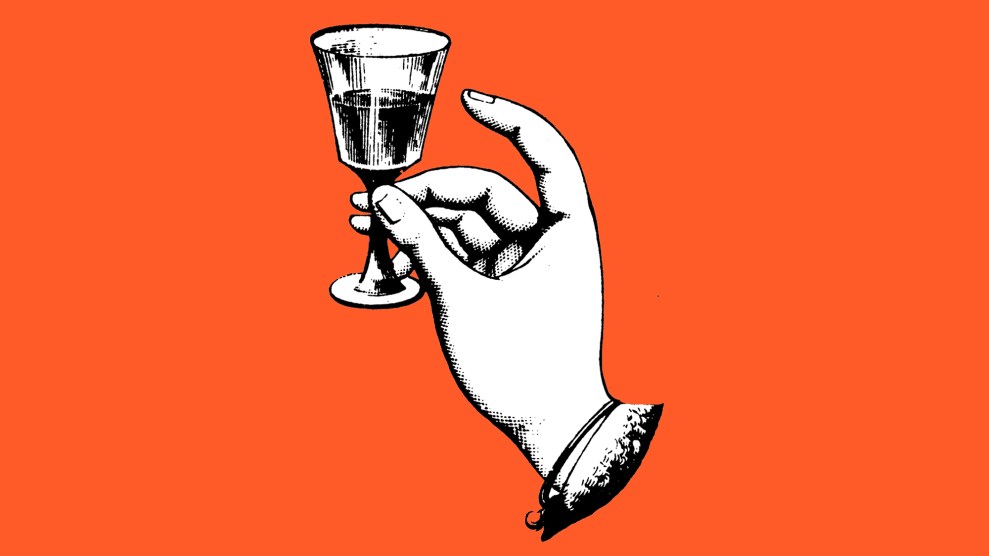Monsanto’s efforts in plant biotech are aimed not only at boosting crop yields but at helping the company retain a market for its cash cow, the herbicide Roundup. As the biggest-selling weed killer in the world, Roundup accounts for 17 percent of Monsanto’s total annual sales of $9 billion. Roundup is what’s known as a broad-spectrum herbicide, because it kills nearly anything green. But its main ingredient, glyphosate, breaks down quickly in soil, so that little or no toxic byproduct accumulates in plant or animal tissue — a detail that Monsanto highlights when describing itself as an environmentally friendly company.
Monsanto’s U.S. patent on Roundup runs out in three years, and if the company is to keep its dominant market position beyond the year 2000, it needs a new spin. Enter Roundup Ready soybeans and Roundup Ready cotton, seeds genetically manipulated so that they can survive direct applications of Roundup. Farmers who once confined their use of the weed killer to the borders of their planting area can now douse entire fields with Roundup instead of using an expensive array of sprays that each target just one or two weeds. “It expands the Roundup market,” says Gary Barton, a Monsanto spokesman.
The only catch: Farmers using Roundup Ready seeds can only use Roundup, because any other broad-spectrum herbicide will kill their crops. So, with every Roundup Ready seed sale, Monsanto sells a season’s worth of its weed killer as well. The company also keeps close tabs on the crops’ progress: Farmers must sign a contract promising not to sell or give away any seeds or save them for next year’s planting, and the company inspects its customers’ farms for violations.
Monsanto says that the new technology will benefit the environment, arguing that the more farmers rely on Roundup, the less they will need harsher herbicides.
But studies show glyphosate, which has been described by the Environmental Defense Fund and by Vice President Al Gore as safer than other herbicides, is not as benign as it is billed. Glyphosate is less toxic than many other herbicides, but it’s still the third most commonly reported cause of illness among agricultural workers in California. For landscape maintenance workers, it ranks highest. And, according to the Journal of Pesticide Reform, the herbicide also damages the ability of bacteria to transform nitrogen into a usable form for plants, and it harms fungi that help plants absorb water and nutrients. Residues of the herbicide have been found in lettuce, carrots, and barley that were planted a year after the soil was sprayed.
Critics also contend that as farmers plant more Roundup Ready seeds and spray their fields with increased doses of Roundup, herbicide “drift” may increase significantly. If this happens, neighboring farms may be forced to switch to the Monsanto seeds in order to keep their crops from being destroyed by the airborne herbicide.
Monsanto needs a big win with Roundup Ready seeds because the company has invested so heavily in biotech. James Wilbur, an analyst with Smith Barney, told the Wall Street Journal that “if genetic technology doesn’t work on a product like this, it calls into question the whole long-term strategy of the company.” But it may be human nature rather than Mother Nature that puts a dent in Monsanto’s marketing plans for biotech products. The United States sells about 40 percent of its soybeans to Europe, where consumers and environmentalists are in an uproar about Roundup Ready soybeans. Even though these soybeans have been approved by the European Union, many consumers aren’t convinced they are safe. In fact, surveys show up to 85 percent of Europeans would shun genetically altered food if given the choice. EuroCommerce, a trade group representing one-third of European wholesalers and retailers, has demanded that gene-altered soybean products at least be labeled — a task that U.S. companies and officials say is impossible under current distribution methods, since soybeans from different sources are mixed together for shipment.
Furthermore, the German subsidiaries of packaged food companies Unilever and NestlZ
The threat of a European boycott of genetically altered food products is significant, says Tim Galvin of the U.S. Department of Agriculture. “Labeling is a hot topic, and far from played out.” But the USDA opposes labeling, claiming that gene-altered foods are no different from other foods. And Galvin thinks the issue will blow over.
But will it? “Companies like Monsanto were caught off guard,” says Ron Barnett, president of Genetic ID, a small Iowa company that produces a test capable of detecting genetic alterations in crops. Barnett said the test has generated considerable demand from overseas importers who want to avoid buying altered crops.
So far, American consumers have been mostly silent. But the Washington, D.C.-based Pure Food Campaign, which was founded to combat bovine growth hormone, is organizing a telephone campaign aimed at getting companies such as Coca-Cola and McDonald’s to shun genetically altered soy and corn. Greenpeace ran a full-page ad in USA Today on Halloween, accusing Monsanto of playing “tricks” with children’s chocolate bars. And Central Soya, one of the nation’s biggest soybean processors, has barred Roundup Ready soybeans from one of its grain elevators so that the different beans can be compared.
U.S. officials say that consumers here and abroad are being irrational. Secretary of Agriculture Dan Glickman, speaking on behalf of the United States at the World Food Summit in Rome last year, said, “Biotechnology can give us a quantum leap forward in food security by improving disease and pest resistance, increasing tolerance to environmental stress, raising crop yields, and preserving plant and animal diversity.”
“As world leaders, we shouldn’t fight sound science,” Glickman argued. “Countries that choose to turn away from biotechnology should recognize the consequences of their actions to the world.”
But critics insist the government and companies like Monsanto are missing the point. “I’m not scientifically qualified to say whether the crops are safe or not,” says Dan McGuire, former executive director of the recently disbanded Interstate Grain Commission, which arranged grain sales between the United States and Europe. “But how can you be market-oriented if you don’t give the market what it wants?”















